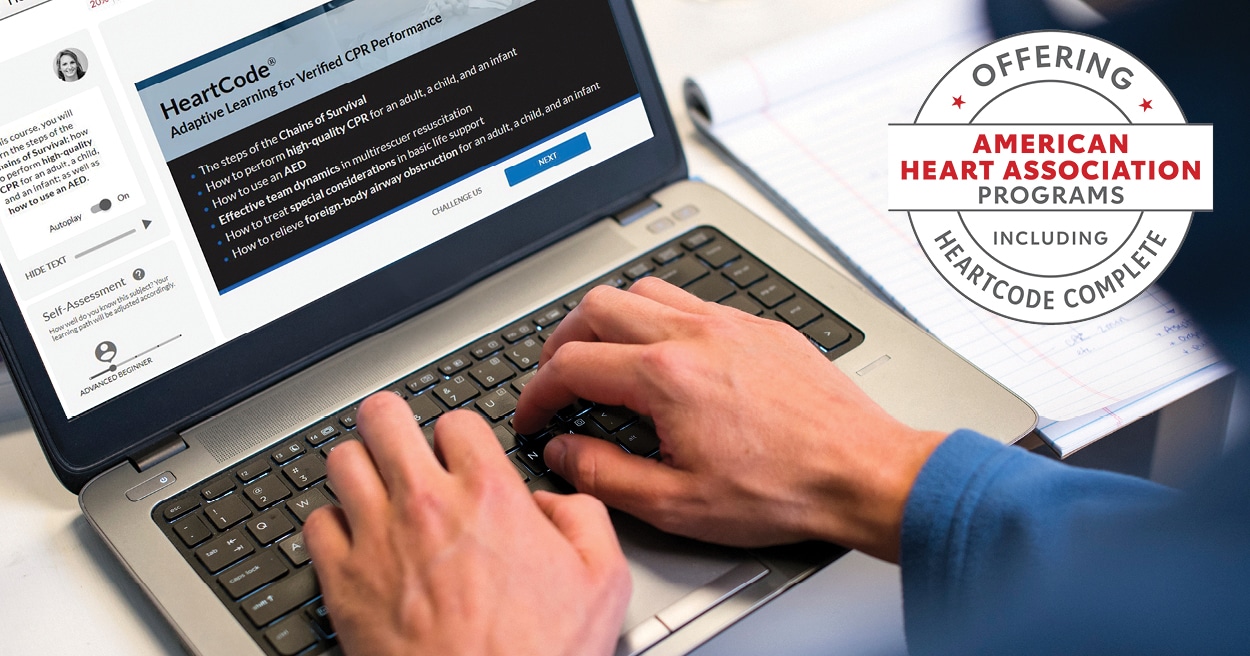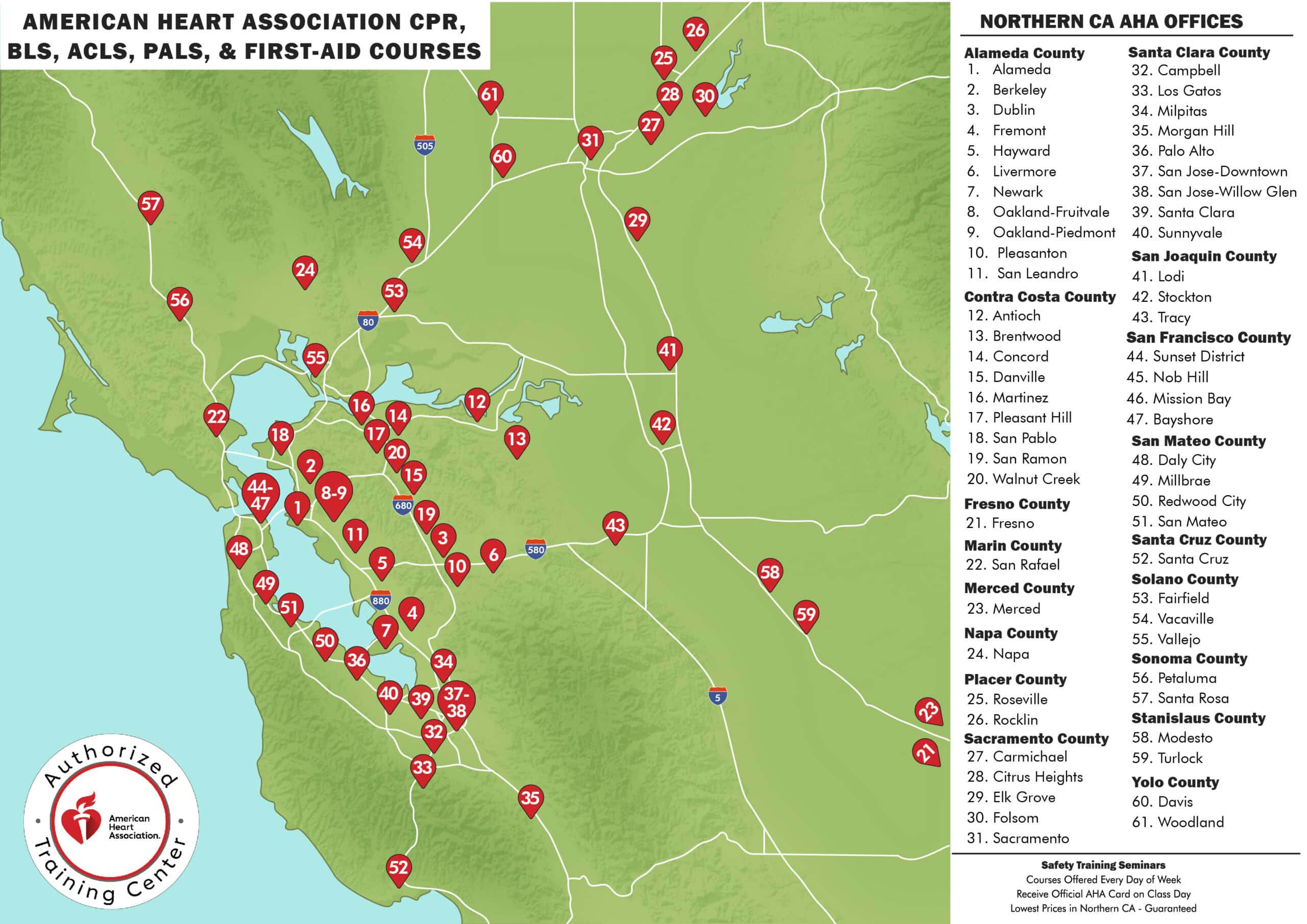American Heart Association© PALS Certification Classes in Visalia

American Heart Association© PALS
Course Name: PALS Pediatric Advanced Life Support (Initial or Renewal)
Online PALS Course Length: 3-4 hours online course (At your home.)
Skills Testing: 30-40 minutes (At one of our over 60 testing sites.)
Price: $290 (This includes the online PALS course, skills testing, & PALS card.)
Certification: American Heart Association© PALS certification card.
When: PALS classes are offered Monday – Sunday from 7 am to 6 pm
Card Issuance: You will receive the PALS certification card on day of class.
Add ons available: ACLS, BLS, First-aid, Opioid, or Bloodborne Pathogens
Low Price Guranetee: Lowest Prices in Visalia, CA. Price matching policy.
View Upcoming PALS Courses in Visalia
PALS Courses Near Me In Visalia & Other Cities

- 5215 W Noble Street, Suite 102, Visalia, CA 93277
- (559) 218-5860
Enhancing Pediatric Care: American Heart Association PALS Classes in Visalia
Visalia, a dynamic city in California’s Central Valley, is known not only for its vibrant agricultural industry but also for its commitment to providing excellent healthcare services to its residents. Among these services, Pediatric Advanced Life Support (PALS) training, as offered by the American Heart Association (AHA), is essential in equipping healthcare professionals with the necessary skills to handle pediatric emergencies effectively. This article delves into the significance of PALS classes in Visalia, highlighting how these courses prepare medical personnel to provide life-saving care for infants and children in critical situations.
The Importance of PALS Training
Children are not simply smaller versions of adults; they have unique physiological and anatomical characteristics that require specialized medical knowledge. Pediatric emergencies, such as respiratory distress, shock, and cardiac arrest, demand a distinct approach to assessment and intervention. PALS training provides healthcare professionals with the skills and confidence to respond effectively to these critical situations. The training focuses on the systematic approach to pediatric assessment, effective resuscitation techniques, and the stabilization of seriously ill or injured children.
PALS courses are designed to teach participants how to recognize and manage respiratory and cardiovascular emergencies in pediatric patients, ensuring that healthcare providers can deliver the appropriate interventions quickly. This is crucial because, in pediatric emergencies, the time between the onset of symptoms and the need for intervention is often brief, requiring a swift and precise response. By completing PALS training, healthcare professionals can significantly improve the chances of survival and positive outcomes for young patients experiencing life-threatening medical emergencies.
PALS Classes in Visalia
Visalia is home to numerous healthcare facilities, including hospitals, clinics, and emergency services, all of which require trained professionals capable of providing high-quality pediatric care. The AHA’s PALS classes in Visalia meet this need by offering comprehensive, evidence-based training tailored to the specific challenges of pediatric emergency care. These classes are essential for a wide range of healthcare providers, including pediatricians, emergency room physicians, nurses, paramedics, and other first responders who may encounter critically ill or injured children.
PALS classes in Visalia are conducted by certified AHA instructors who are experts in pediatric care and emergency response. These instructors provide participants with the latest information and practices in pediatric resuscitation and emergency care, ensuring that the training is current and aligned with the most recent scientific guidelines. The courses are designed to be interactive and hands-on, combining theoretical knowledge with practical skills application, which is critical for effective learning and retention.
Course Components and Structure
PALS training in Visalia is structured to provide a comprehensive understanding of pediatric emergency care, emphasizing both the theoretical and practical aspects of managing critically ill children. The curriculum covers several key components, each essential for developing the skills needed to respond to pediatric emergencies:
Pediatric Assessment: A foundational component of PALS training is learning how to perform a systematic pediatric assessment. This includes the Pediatric Assessment Triangle (PAT), which focuses on evaluating a child’s appearance, work of breathing, and circulation to skin. Understanding these indicators helps healthcare providers quickly determine the severity of a child’s condition and make informed decisions about the necessary interventions.
Recognition and Management of Respiratory Emergencies: Respiratory issues are among the most common causes of pediatric emergencies. PALS classes teach participants how to identify signs of respiratory distress and failure in children and infants, as well as how to perform effective airway management, ventilation, and oxygenation techniques.
Cardiac Arrest and Arrhythmia Management: Although less common than respiratory emergencies, cardiac arrest in children requires immediate and effective intervention. PALS training provides instruction on the use of pediatric defibrillation, cardioversion, and the administration of medications to manage cardiac arrest and arrhythmias in young patients.
Shock Management: Shock, a life-threatening condition, can result from various causes, including trauma, infection, and dehydration. PALS classes teach healthcare providers how to recognize the signs of shock, initiate appropriate fluid resuscitation, and use pharmacological interventions to stabilize the child.
Effective Resuscitation Team Dynamics: Pediatric emergencies often require a coordinated team effort. PALS training emphasizes the importance of effective communication, leadership, and teamwork in resuscitation scenarios. Participants learn how to perform their roles within a team, ensuring that resuscitation efforts are organized and efficient.
The PALS course typically follows a blended learning format, where participants complete online modules covering theoretical content before attending in-person sessions for hands-on practice. This approach allows healthcare providers to learn at their own pace while ensuring they receive the practical experience necessary to apply their knowledge in real-life situations.
Hands-On Simulation Training
A critical component of PALS training in Visalia is the use of hands-on simulation. Simulated pediatric emergencies provide participants with realistic scenarios that mimic the conditions they may encounter in their practice. Using high-tech manikins and medical equipment, these simulations create an immersive learning environment where healthcare professionals can practice their skills in a controlled setting.
Simulation training allows participants to apply their knowledge, practice critical thinking, and refine their decision-making skills under pressure. It also provides the opportunity to receive immediate feedback from instructors, helping participants to identify areas for improvement and build their confidence. By practicing in realistic scenarios, healthcare providers can better prepare for the emotional and clinical challenges of pediatric emergencies, improving their ability to perform effectively in real-world situations.
Impact on Community Health
The availability of PALS training in Visalia has a significant impact on the health and safety of the community’s youngest members. By equipping healthcare professionals with advanced skills in pediatric emergency care, PALS classes enhance the overall quality of care provided to children in Visalia. This training ensures that when children experience severe medical emergencies, they receive the best possible care, improving their chances of survival and reducing the risk of long-term complications.
Moreover, having a well-trained healthcare workforce instills confidence in the community. Parents and caregivers in Visalia can have peace of mind knowing that local healthcare providers are prepared to handle pediatric emergencies with competence and compassion. This assurance is vital for the overall well-being of the community, fostering a sense of security and trust in the local healthcare system.
Conclusion
The American Heart Association’s PALS classes in Visalia are a cornerstone of pediatric healthcare education and training. By providing healthcare professionals with the knowledge and skills needed to manage pediatric emergencies effectively, these classes play a crucial role in safeguarding the health of the community’s children. As Visalia continues to grow, the demand for skilled pediatric healthcare providers will increase, underscoring the ongoing importance of PALS training. Through these educational efforts, Visalia is better prepared to face pediatric emergencies, ensuring the safety and well-being of its youngest residents. The commitment to PALS training reflects Visalia’s dedication to excellence in healthcare and its role as a leader in advancing pediatric care in California’s Central Valley.
FAQs
Who should attend PALS certification classes in Visalia?
PALS certification classes are primarily designed for healthcare professionals who are involved in the management of pediatric patients, including pediatricians, emergency physicians, nurses, paramedics, and respiratory therapists.
How long does a PALS certification course typically last?
PALS certification courses usually span over two days, with a combination of didactic instruction, skills practice, and simulated scenarios to ensure comprehensive learning and skill mastery.
Is there a renewal requirement for PALS certification?
Yes, PALS certification is typically valid for two years, after which healthcare professionals are required to undergo PALS renewal courses to maintain their certification.
